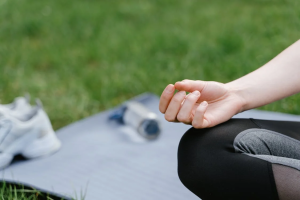It is a really intricate process, to be totally committed and to have an all-inclusive approach to addiction recovery. However, therapy, support groups, and treatment programs have their vital role to play, self-care; that seems simple is a potent aspect of recovery. Self care lays the foundation for good addiction recovery.
In the field of drug and alcohol addiction treatment, self-care means more than entertaining or cosseting oneself. It is a really contriving, mindful attempt at restoration of the person’s body, mind, and spirit. It is to be the person who pours for one’s self the kind of love and nurturing that is given to the most stressed plant in the world. It is like feeding, exposing to sunlight, and giving support so that it grows.
Why Is Self-Care Important In Addiction Recovery ?
A person’s life is severely influenced by addiction; be it destroyed relations, disrupted sleep patterns, weakened immune systems, or eroded self-esteem. All these need healing while coming back to one’s self. Self-care, as a wonderful remedy, provides the following benefits:
-
Lessen Anxiety and Stress:
Recovering from addiction is not easy, rather it is filled with various trials. Triggers and cravings bring about great anxiety and the thought of relapse creates even more concern. Stress can be calmed, and the mind soothed, by self-care techniques such as yoga, deep breathing, and mindfulness.
-
Fosters the Mood and Motivation:
Activities that are usually fun and joyous can be festivities to wake up in the morning and fight the weight of their current emotional states: Depression and apathy are common consequences of addiction and withdrawal.
-
Improves Physical Health:
Addiction causes the neglecting of the self-care practices: Nutrition, Exercise, Good Sleep. All these are essential to an overall enhancement of health and a reduction in susceptibility to health issues.
-
Raises Self-Confidence:
Apart from drug and alcohol addiction treatment, engaging in activities that enhance feelings of accomplishment, such as volunteering, learning a new skill, or pursuing a hobby, can help one feel more self-confident and positive about oneself.
-
Builds Resilience:
Self-care improves resilience, which allows one to overcome hurdles and disappointments that may arise during one’s addiction recovery process.
Maintaining Mental and Physical Wellness While Recovering From Addiction
Apart from taking a formal addiction treatment program, one has to take care of their physical and mental well being on their own. This ensures long term sobriety and a personal touch to treatment.
-
First, Ensure Your Body is Healthy:
Make sure to eat a well-balanced diet full of healthy grains, fruits, and vegetables. Limit beverages and food that are rich in sugar and processed; also limit caffeine.
Engage in something active such as cycling, swimming, jogging, or walking at least four days a week. Exercise enhances physical fitness and releases endorphins and these will improve your mood. Recovering addicts are advised to get a minimum of between 7 to 9 hours of quality sleep every night. It’s advisable to have a soothing routine every night and also maintain a schedule for going to bed and waking up in the mornings.
-
Improve Your Mental Well-Being Develop
Include mindfulness practices in your everyday routine. For instance yoga and meditation, deep breathing techniques. All of these techniques can assist with mental relaxation, help ease anxiety, and develop self-awareness. Other options include:
- Engage in writing, music, art, or whatever means possible for you to dabble into creativity.
- Spend some time breaking free from walls by gardening, hiking, or simply walking.
- Along the way of healing, treat yourself with kindness and forgiveness. Celebrate every little victory and acknowledge how far you’re going.
-
Build Good Relationships:
Be with joyful, supportive people who motivate your healing. While recovering from addiction, learn to set and maintain healthy boundaries within your relations. Healthy communication is also important. Speak honestly and openly to those dear to you.
-
Holistic Treatments:
Sometimes it helps to relieve tight muscles, reducing stress and helping relaxation. Acupuncture is also helpful as it lowers stress levels; improves general health. Tai chi and yoga may strengthen consciousness, improve flexibility, and provide balance.
Make a Plan for Self-Care:
Making a personalized plan helps recovering addicts to stay on their path of recovery. This not only encourages them to stay sober amidst the challenges of life but also helps them in considering treatment as an essential part of their recovering phase. Here are some tips for making customized plans for self-care.
- Discover Your Requirements: Think over your personal needs and desires. What kinds of activities are truly enjoyable? What makes you feel stressed? Where do you need the most attention given to the mind or body?
- Set realistic goals: Start small and gradually increase the occurrence and intensity of self-care.
- Plan Your Self-Care: With your plans related to your addiction treatment program, establish self-care as a priority in daily or weekly routine, scheduling it like any other important appointment.
- Find a Support System: Discuss your self-care plan with a therapist, family member, or close friend to get encouragement and accountability.
- Patience and Persistence: It takes time and effort to build good self-care habits. Celebrate your successes, give yourself grace, and keep going.
Self-Care Is Prolonged And Not A One-Day Event
It requires persistent effort and flexibility so that one can adjust to an evolving need. The choice of putting priority on self-care empowers people in addiction recovery to develop a core strength and foster their general wellness, increasing their odds of success over a lifetime. Self-care allows people to build their lives towards long-term fulfillment, freedom, and well-being.
Note: This is for informative purposes only. If you have an addiction, you should get advice from a trained healthcare provider. If you or someone close to you is addicted, do not hesitate to get help.










